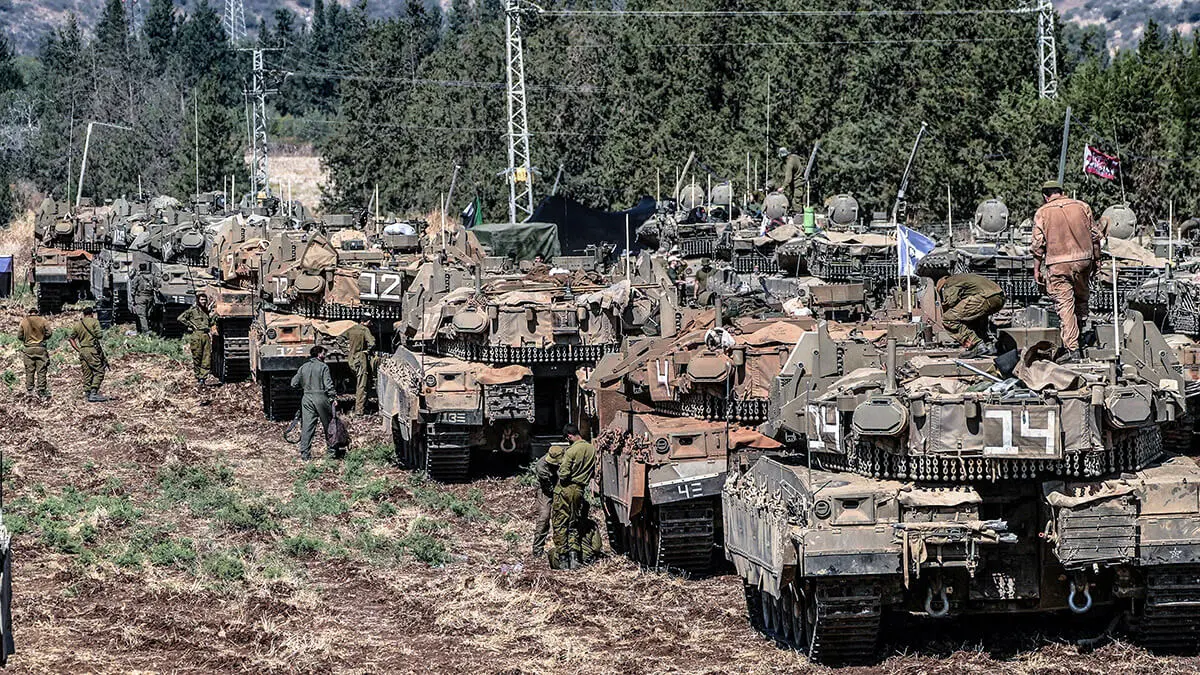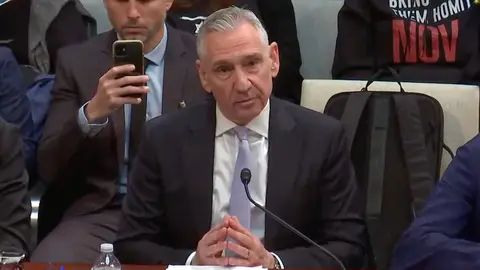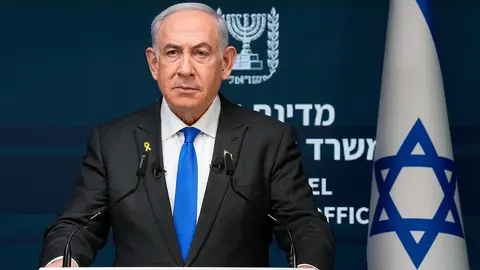The war nobody wants?

I am not sure that the same thing is happening today, that nobody wants it, because it seems to me that Israel wants this war and that is why it has been provoking the Lebanese and Iranians for a couple of months - since military operations in Gaza were scaled down. It wants it so that after it has ended Hamas's military control in Gaza, it will also end Hezbollah's incumbent Hezbollah from Lebanon, to the point of having forced 60,000 Israelis from their homes along the border at a high cost of displaced families, closed schools and factories and unharvested crops (there are 100,000 displaced on the Lebanese side as well). And if he can get Iran to come to the aid of its allies... so much the better.
True, Hezbollah's leader Nasrallah has decided that he should support Hamas's fight by increasing missile fire on Israel, but he did so carefully, trying to avoid civilian casualties so as not to provoke open warfare. Until one landed in the occupied Golan, killing a dozen Druze children. Israel responded by assassinating Hezbollah's number two, Sukr, in Beirut, and from there the crisis spilled over into the Mossad's cinematic operation on Hezbollah's fighters, or the death of some 20 of its military leaders gathered in a Beirut basement on the 20th. In between, Hezbollah has lost leadership and the ability to communicate. The Israeli offensive has killed 600 Lebanese in two days when in 2006, the last war in Lebanon, it ‘only’ killed a thousand in thirty days. And many are civilians as in Gaza.
It seems as if Israel's ultra-nationalist government wants to wipe out Hezbollah while provoking Iran by bombing its consulate in Baghdad or assassinating in Tehran Ismail Haniyeh, the Hamas leader who was an official guest at the inauguration of President Pezeshkian. And, incidentally, to give the Palestinians in the West Bank who have the audacity to defend their land against aggressive settlers a good going over. There are already more than 600 dead there, thousands arrested and much destruction of homes and infrastructure.
The impunity with which Israel acts is scandalous. In other words, war on all fronts in order to wipe out all enemies once and for all. Israel has the capacity to do this because it has total military superiority and US backing (necessary if Iran enters the fray), which recognises its right to defend itself, something that no one denies, although many of us think it should do so within the limits set by international law and humanitarian law.
Hezbollah, whose military branch we Europeans consider a terrorist group, does not want an all-out war because it knows it is losing it, but it is trapped by its commitment to harass Israel until a ceasefire is reached in Gaza, and that is not forthcoming because, on the one hand, Netanyahu puts the elimination of Hamas before the release of the hostages, and, on the other, because Sinwar, the new leader of Hamas, says he will not lay down his arms as long as there are Israeli soldiers left in Gaza.
Now, in the face of the strong Israeli offensive in Lebanon, Nasrallah will have to choose between whether he will fold or whether he will decide to ‘take the plunge’ and launch his powerful ballistic arsenal on Israel. Meanwhile, it is the Lebanese who are footing the bill when a recent Arab Barometer poll shows that 55% are fed up with Hezbollah, which is only popular in the Shi'a part of the country (30%).
An all-out war with Hezbollah, armed by Iran, will also in principle have a high cost for Israel because it is a much stronger adversary than Hamas, and because its armed forces are tired after a year of fighting, the arsenals are empty, there is strong popular discontent with the government for its inability to free the hostages, and the country's international image is badly damaged by the humanitarian disaster it has caused in Gaza.
Its economy has contracted by 4.1% since the fateful 7 October and agencies such as Fitch have downgraded its credit rating. But all this does not seem capable of dissuading Netanyahu, who wants to restore his country's image of military strength that was shaken by the security failures that allowed the Hamas terrorist attack of 7 October, and who seems willing to pay the necessary price to impose another peace that will last another thirty or forty years. And then we will see.
For its part, Iran does not want open war with Israel either because the Americans would intervene and it would lose. And it knows it. It throws a stone and hides its hand. In any case, President Pezeshkian made a conciliatory speech at the United Nations this week, even offering to resume nuclear negotiations and calling for the lifting of the sanctions that are hurting Iran so much.
This opportunity should be seized because in the end Iranians, Israelis, Palestinians and Lebanese will continue to live in the region they share and the risk, in all likelihood, is that this crisis will cause much suffering, close badly like all the previous ones and be repeated in a few years' time. Because there will be no security for Israel without justice for the Palestinians and because with military power, with bayonets, everything can be done... except sitting on them, as Tayllerand told Napoleon two hundred years ago and Israel is doing today.



